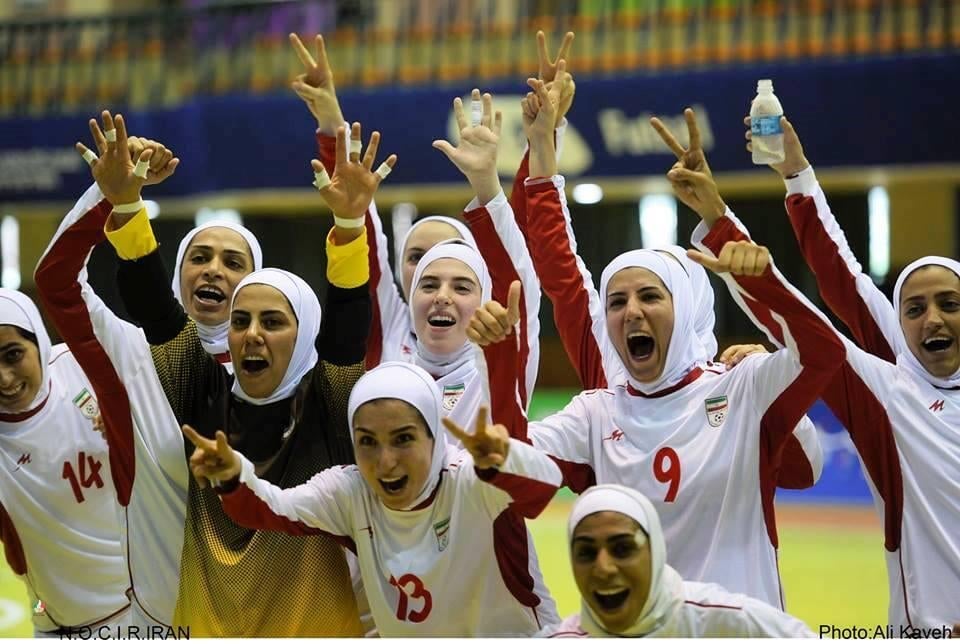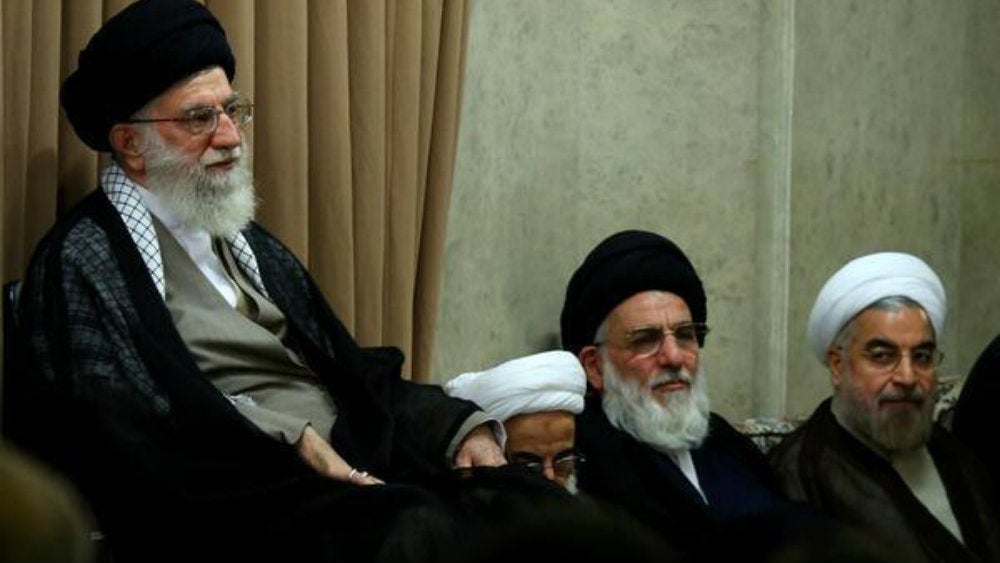Is the Twitter diplomacy of Iran’s next president a clever ruse?
Someone is spoofing Iran’s supreme leader, Ali Khamenei, at this Twitter address, although his underlings do update the masses as to his doings here. Hassan Rouhani, who will be sworn in Aug. 4 as the nation’s new president, tweets in a more personal style in both English and Farsi: On July 5, Rouhani sent out the photo above, of the Iranian women’s futsal team after it won a silver medal at the Asian Indoor and Martial Arts Games in South Korea. Among three tweets in the last 24 hours, he included the photo below of what he suggested was a reunion of Khamenei’s circle.


Someone is spoofing Iran’s supreme leader, Ali Khamenei, at this Twitter address, although his underlings do update the masses as to his doings here. Hassan Rouhani, who will be sworn in Aug. 4 as the nation’s new president, tweets in a more personal style in both English and Farsi: On July 5, Rouhani sent out the photo above, of the Iranian women’s futsal team after it won a silver medal at the Asian Indoor and Martial Arts Games in South Korea. Among three tweets in the last 24 hours, he included the photo below of what he suggested was a reunion of Khamenei’s circle.

Skeptical Iranian hands say we are witnessing a gigantic ruse: Khamenei and Rouhani are scheming to make the world think they have warmed up and are ready to compromise on their nuclear program, these voices say. All the while, they instead are just playing for more time while their centrifuges redouble their work.
If so, the trick seems to be working to some degree—as his tweets win Rouhani points from some quarters for being warm and fuzzy, observers are pressing Washington to give him a chance and not box him into a corner. “There is no certainty that diplomacy will work. But the failure to try would be the true policy defeat,” writes Gary Sick, who was President Jimmy Carter’s chief aide on Iran during the 1978 Iranian revolution.
As of July 1, international sanctions on Iran tightened considerably (paywall), part of the West’s strategy to push the country to give up its nuclear research program. The sanctions now include penalties for trade with Iran in oil, metals and virtually any transaction with its shipping and ports operators. The global squeeze has extended to Iran’s natural gas sector—it has the world’s largest reserves, but the sanctions have paralyzed its ability to develop a liquefied natural gas trade.
As a result, the rial has lost half its value. On July 18, the World Bank said Iran is six months in arrears on $697 million in loans (Iran has fired back that it has sent the money but that, because of the sanctions, the intermediary bank has refused to pass it on.).
Yet Iran is not entirely crippled. Turkey and South Korea are increasing their Iranian oil imports. Iran’s current account is in surplus because it has managed to compensate for the loss of oil sales with exports of cement, petrochemicals, rugs and other goods.
Meanwhile, notwithstanding Rouhani’s softer tone, Khamenei is as pugnacious as ever. In a July 21 statement, the ayatollah again urged his country to be on guard toward the United States, and suggested that whatever the case, Iran will stay its course. “The art in interaction with the world is to continue your path without the other party being able to stop you,” Khamenei said. “If interaction with the world causes retreat from the path, it is a loss.”
Such talk helps to inform the attitude of Iranian skeptics.
“The election of Rouhani might be a godsend for the supreme leader, who can now offer up a more soft-spoken, cosmopolitan and diplomatic president to convince the West to ease sanctions, even while Khamenei is unprepared to relinquish his nuclear program,” Mark Dubowitz, who pushes for strong Iran sanctions at the Foundation for Defense of Democracies in Washington, DC, told Quartz.
Dubowitz said his recent contact with people close to Rouhani makes clear to him that the Iranian president-designate is camouflaging his true intentions not to compromise. While the Iranian charm offensive goes on, he said, the US should escalate sanctions in order to “precipitate an economic and financial crisis.”